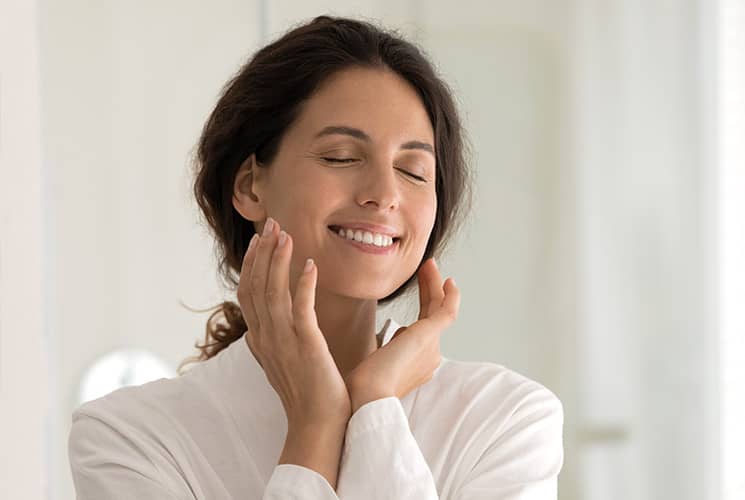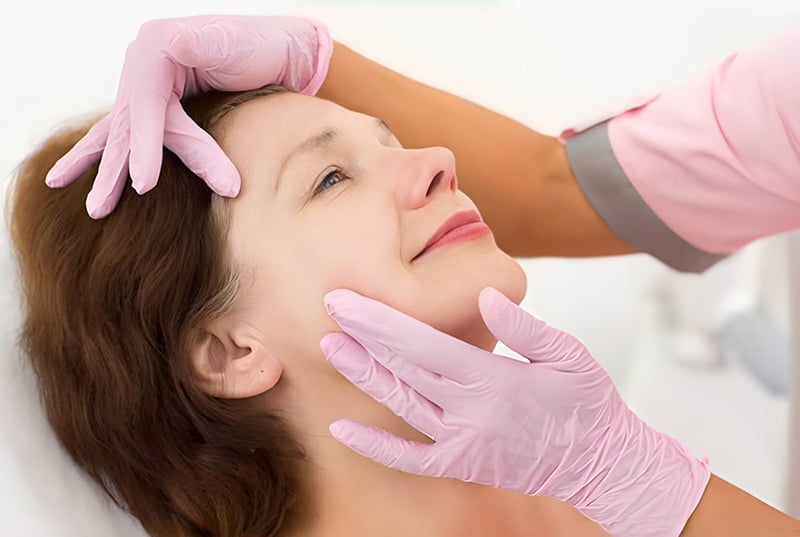Benefits of Different Facials on Your Skin
With the help of a professional skin therapist, patients can benefit from a range of cosmetic treatments that address a variety of skin issues. Through facial treatments, clients can expect to see improved skin tone and texture, reduced fine lines and wrinkles, hydration, antioxidant protection from environmental damage, and overall enhanced radiance. Here are just some of the many benefits that regular facial treatments can provide for your skin!
What Is a Facial?
Facial treatments are an essential part of a skincare routine for any skin type and condition. Facials help exfoliate the skin, removing dead skin cells and allowing fresh, new cells to form. Facials improve the overall texture of the skin, and it appears more radiant. Furthermore, facial treatments can help improve the tone of the skin. Depending on the product used in a particular treatment, facials can hydrate the skin and provide antioxidant protection from environmental damage caused by free radicals. Regular facials can also help reduce fine lines and wrinkles by promoting collagen production in the deeper layers of the skin. The results of regular facial treatments will vary depending on your individual needs and which products are used during each session. However, they will leave you with a glowing complexion that is soft and smooth to the touch!


What Do Facials Treat?
Facials can treat a variety of skin conditions. Some of the most common conditions that can be addressed include eczema, general dryness, acne, blemishes, sun damage, age spots, and wrinkles.
These treatments can also help men and women who want to add some glow and clarity to their skin. Many of our facials contain exfoliants that eliminate the dead layers of skin and expose new and much more youthful layers.
Some clients get facials as a self-pampering method because it makes them feel good about themselves. Facials are comfortable and pleasant in addition to leaving the skin refreshed.
How Do They Work? Specific Ingredients Used in Facials
Facial treatments work by using a combination of specialized products, massage techniques, and other skincare therapies to address specific skin concerns. The ingredients used in facials depend on the individual needs of the client. Common ingredients used include hyaluronic acid, which keeps the skin hydrated and firm; peptides, which help reduce wrinkles and fine lines; antioxidants, which can help protect against environmental damage; and essential oils to nourish the skin. Depending on your skin type, additional ingredients such as retinol or glycolic acid may be recommended to help improve tone and texture. With customized facial treatments tailored to meet your individual needs, you can expect glowing, healthy skin with improved texture and tone.

Patient Reviews

Am I a Candidate for Facials? Common Skin Concerns That Facials Treat
A facial is suitable for a variety of skin types and concerns, including acne, dryness, wrinkles, sagging skin, and uneven skin tone or texture. If you have any of these issues to address, a facial may help. Your aesthetician or dermatologist can determine the best type of facial for your individual needs and customize the treatment to meet your specific goals. Facials can also be used as a preventative measure to ensure that your skin stays healthy and hydrated. With regular treatments, you can expect improved texture and tone as well as long-term protection from environmental factors such as sun exposure and pollution.
Why choose the Doctors at Becker Plastic Surgery

Kirk Lozada, MD, FACS
- Completed his fellowship at the University of Pennsylvania and has trained with the top Facial Plastic Surgeons in Philadelphia, New York, and New Jersey.
- Has traveled to Ica, Peru with Healing the Children on multiple occasions performing a high volume of cleft lip and palate surgery.
- Is currently a member of the American Academy of Facial Plastic & Reconstructive Surgery and has numerous publications and presentations in the field of facial plastic surgery.

Daniel Becker, MD, FACS
- Board Certified by the American Board of Otolaryngology (ENT).
- Board Certified by the American Board of Facial Plastic and Reconstructive Surgery (ABFPRS).
- Fellow of the American College of Surgeons (FACS).
- Top-Rated by US News and World Report, Philadelphia Magazine, South Jersey Magazine, Castle-Connelly, and others.
- Read more about rhinoplasty specialist Dr. Becker’s credentials

Nicole Schrader, MD, FACS
- She is a double board certified surgeon in Facial Plastic and Reconstructive Surgery and Otolaryngology & Head/Neck Surgery.
- Is a member of the American Academy of Facial Plastic and Reconstructive Surgery
- Has over 20 years of experience, 15+ years in private practice and has performed hundreds of facelift surgeries.
- Dr. Schrader Recognized as Best Plastic Surgeon by Town Topics Readers’ Choice Awards.

Pick one of our 6 convenient locations
for Your Plastic Surgery Needs
Facial FAQs
No, a single facial will not be able to fix your skin concerns overnight. While facials can help improve overall skin health and provide immediate results, long-term benefits are seen with regular treatments. Facials can provide deep cleansing of the skin and nourishment through specialized products and massage techniques. However, you should follow an ongoing skincare routine in between treatments to maintain healthy, glowing skin. A dedicated at-home skincare routine along with regular facials can help improve the appearance of your skin over time.
Yes, facials are definitely worth your money. While a single facial won’t offer long-term results, regular treatments can help improve overall skin health and appearance. Facials are tailored to meet the individual needs of each client and can provide a range of benefits depending on the specific concerns.
When selecting a facial, do your research to make sure that you are choosing a treatment from an experienced provider. A good facial should include a deep cleanse of the skin with specialized products tailored to meet the individual needs of each client. The treatment should also provide massage techniques, such as lymphatic drainage, that can help improve circulation and reduce puffiness. Extraction of blackheads and whiteheads may also be included in the facial for those who need it. Make sure to ask questions about the procedure so that you understand all aspects of the treatment and can make an informed decision before booking your appointment.
The frequency of facials varies depending on the individual needs of each client. Generally, a client should have a facial every 4-6 weeks. However, if you are dealing with specific skin concerns such as acne or aging, you may need more frequent treatments. For example, those with acne should aim for monthly facials to see long-term results, while those concerned about wrinkles may opt for bi-monthly facials. Your aesthetician or dermatologist will provide personalized advice based on your individual skin type and concerns.
Yes, you can wear makeup after a facial. Generally, it is best to wait for the skin to heal and settle, which can take up to 24 hours after the treatment. You should apply a light moisturizer before applying makeup to ensure that your skin stays hydrated and protected. Additionally, use products specifically designed for your skin type to avoid any potential irritation or breakouts from clogged pores. Finally, do not apply too much makeup as this can cause a heavy feel on the face and lead to further irritation.

